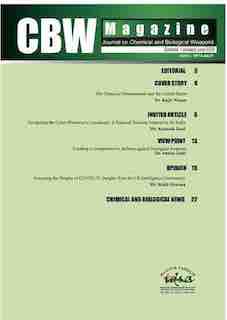White Phosphorus Munition Use in Contemporary Conflicts: A Brief Analysis Within the Context of International Law

The paper discusses the use of white phosphorus (WP) munitions in recent conflict zones such as Ukraine, Gaza, and Nagorno-Karabakh, highlighting the significant legal, ethical, and humanitarian issues it raises. It argues for critically reassessing white phosphorus use in warfare to ensure it aligns with humanitarian values and public ethics. To mitigate the concerns surrounding WP munitions, the paper proposes a few measures, including tightening international laws governing the use of incendiary weapons, improving mechanisms for monitoring and verifying WP usage, and bolstering global efforts to educate and advocate for the curtailment or prohibition of the incendiary munitions. These recommendations aim to enhance compliance with international humanitarian standards and protect human rights in conflict zones.
'Conclusion and Recommendations'
The use of white phosphorus munitions in recent conflicts, as discussed here, raises legal, ethical, and humanitarian concerns. Such weapons violate international standards and cause severe, lasting harm to people and the environment. The narrative surrounding these munitions serves as a stark reminder of their destructive impact on human life and the environment, highlighting the urgent need for compliance with international humanitarian principles. The critical examination of the use of white phosphorus emphasizes the necessity for a comprehensive re-evaluation that aligns with these principles, stressing the need to reduce their deployment in warfare.
It is important to address the complexities and challenges posed by the use of white phosphorus munitions in conflict zones. The following strategic recommendations are proposed to try to lessen the humanitarian impact of white phosphorus munitions, safeguard human rights, and reinforce the foundations of international humanitarian law.
International Regulations:
- Implement more transparent and rigorous guidelines and enforcement protocols for regulating incendiary weapons. This includes revising existing international treaties (e.g. CWC or CCCW) or developing new frameworks to close loopholes that permit the use of white phosphorus under certain conditions, ensuring stricter compliance with international humanitarian laws.
Verification and Reporting
- Develop and implement comprehensive mechanisms for accurately verifying and reporting the usage of white phosphorus during conflict. This should include the creation of independent international bodies equipped with the necessary authority and resources to investigate allegations of misuse, thereby facilitating accountability and transparency in conflict zones.
Awareness and Advocacy
- Intensify efforts to educate the global community about the dire humanitarian consequences of white phosphorus munitions. This includes launching awareness campaigns and advocacy initiatives (e.g. through CWC Coalition, a civil society conglomerate within OPCW) aimed at policymakers and the general public to foster a collective understanding of the need for restrictions or a complete ban on such weapons. Engaging in diplomatic dialogue and leveraging international forums could also amplify the call for action, encouraging states to commit to the ethical conduct of warfare.
Animesh Roul, "White Phosphorus Munition Use in Contemporary Conflicts: A Brief Analysis Within the Context of International Law", CBW Magazine, MP-IDSA, New Delhi. For Complete Paper, read here (PDF)